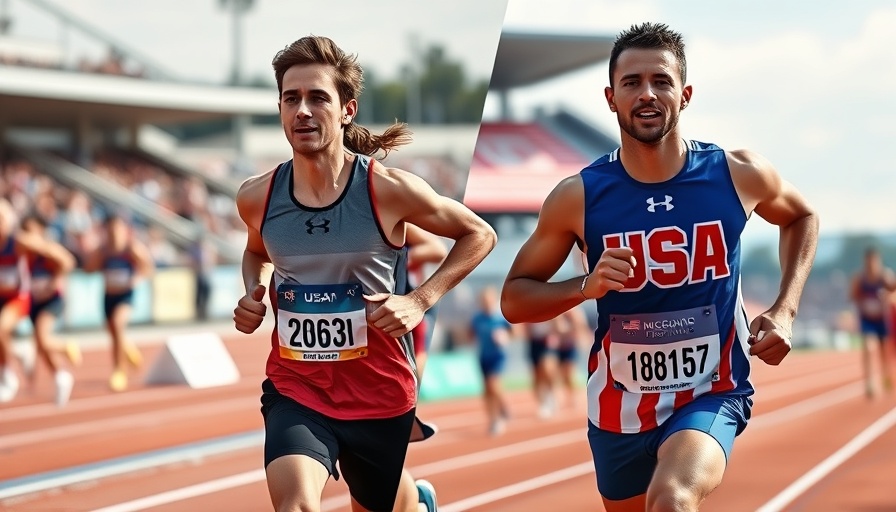
Controversy Erupts in Women’s Sports
The debate surrounding the inclusion of transgender athletes in women’s sports has sparked significant controversy, particularly for those who openly oppose it. A recent story highlights the backlash faced by marathon runner Natalie Daniels, a new mother, who shared her views against trans inclusion following comments made by an Olympian. The fallout has been unexpected and severe, revealing deeper societal divides on gender and fairness in sports.
Threats and Hate: The Dark Side of Public Opinion
Natalie Daniels has reported receiving online threats and hate messages after voicing her concerns. The intensity of the backlash illustrates how polarizing the issue has become, especially in a landscape where athletes have significant platforms. The public reaction, fueled in part by high-profile figures like the Olympian who called her out, raises questions about how discussions on inclusion can escalate into personal attacks.
Why This Issue Matters: A Closer Look at Fairness in Sports
The inclusion of transgender athletes in women's sports has implications that extend beyond individual competitions. Advocates for trans inclusion argue that participation in sports is a fundamental right, advocating for a more inclusive society. Meanwhile, opponents like Daniels argue that biological differences can lead to unfair advantages, particularly in competitive environments. The conversation is further complicated as individuals on both sides feel passionately, with both safety and inclusion at stake.
Public Reactions: Diverse Views and Their Impact
The public discourse around this topic has revealed a spectrum of beliefs. Supporters of trans inclusion emphasize the importance of equality and representation in sports, with many citing that sports should welcome all individuals, regardless of gender identity. Conversely, some athletes and concerned citizens echo Daniels’ sentiments, expressing fears that the integrity of women's sports could be compromised. This juxtaposition reflects broader societal attitudes towards gender and inclusion.
The Role of Social Media in Shaping Narratives
Social media has become a battleground for these critical discussions, amplifying voices on both sides, but also hosting instances of misinformation and hostility. The vicious nature of online interactions can serve as both a megaphone for advocacy and a weapon against dissenting opinions. For Daniels, sharing her story has garnered support from some while simultaneously provoking threats, underscoring the dangers individuals face when entering into contentious debates about identity and sports.
Future Predictions: Where Do We Go From Here?
As the debate continues to unfold, the future of women’s sports may hinge on how these discussions evolve. There is potential for either an increased push toward greater inclusivity or a significant backlash against measures viewed as unfair. The resolution may involve redefining categories in sports or establishing clearer guidelines to promote fair competition while ensuring that all voices are heard in a respectful manner.
Conclusion: Taking a Position in a Divisive Debate
As public discourse becomes more strained, figures like Daniels not only challenge norms but also bear the brunt of the tension surrounding progressive movements. As we consider these issues, it’s essential to foster dialogues that bridge understanding while advocating for the rights and well-being of everyone involved. With stakeholders on all sides vested in the outcomes, how we navigate these waters will shape the future of athletics.
For those who care about fairness in sports and the meaningful inclusiveness of diverse identities, it is critical to engage in this dialogue respectfully and thoughtfully. The landscape of competitive athletics is changing, and so too must our understanding of what it means to truly include everyone. Stay informed and take an active role in this evolving conversation.
 Add Element
Add Element  Add Row
Add Row 



Write A Comment